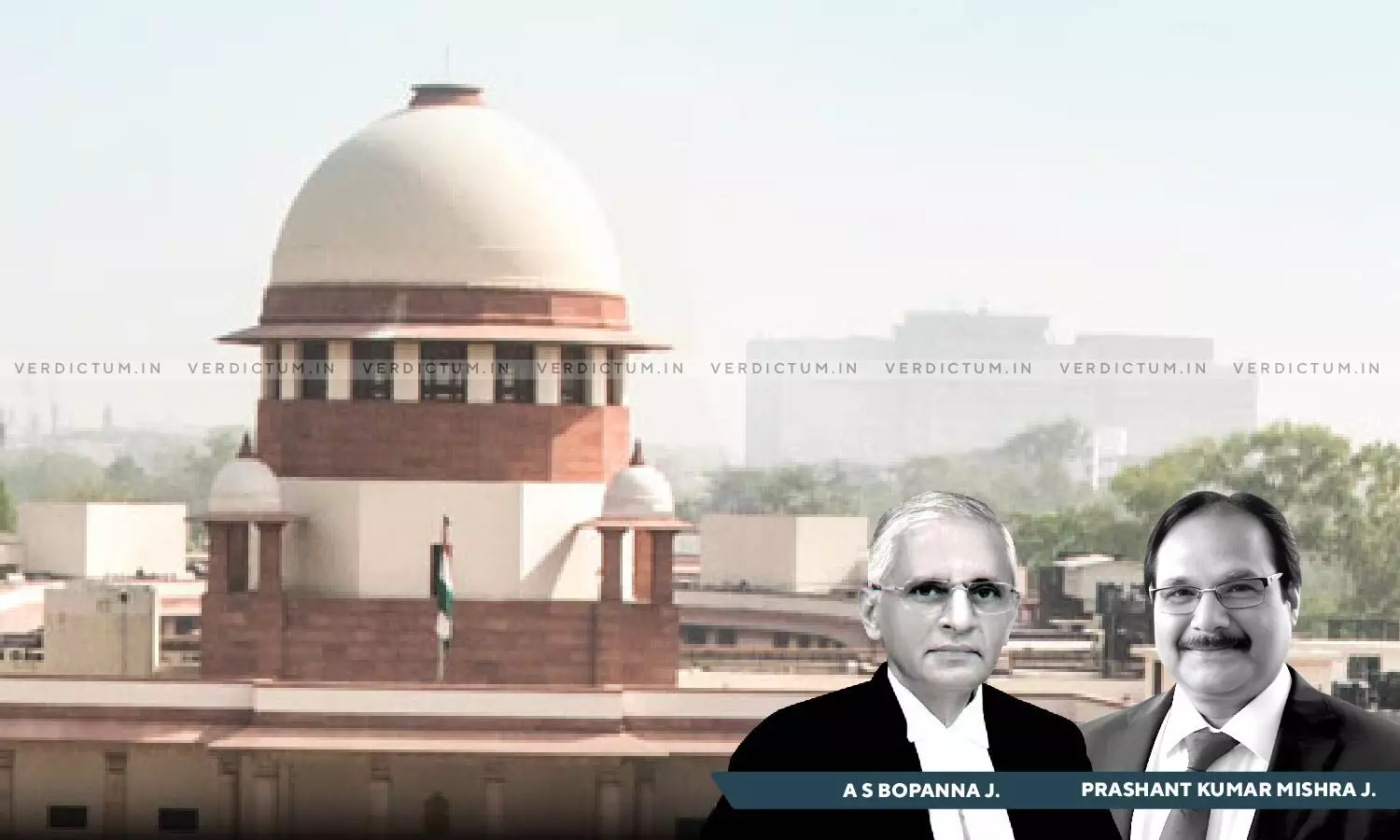
In Absence Of Declaration That Amount Was Illegally Demanded, Either Direction To Pay Interest Or Compensate For Pendente Lite Period Would Not Arise- SC
 |
|The Supreme Court denied the claim for interest on the deposited amount during the pendente lite period in these appeals, where the main issue was regarding the claim for payment of interest on the refund of an amount deposited by charitable institutions (the appellants) with the Delhi Development Authority to avail the benefit of additional floor area ratio (FAR) for construction purposes.
A two-judge Bench of Justice A.S. Bopanna and Justice Prashant Kumar Mishra held that, “when there was no adjudication and determination with regard to the right of the appellant and a declaration that the amount was illegally demanded and retained by the respondent, either the direction to pay interest or to compensate in any other manner for the pendente lite period would not arise.”
The Delhi Development Authority, through a notification, had specified rates for various charges related to enhanced FAR as per the Master Plan of Delhi 2021, including charges for institutional plots. The appellant in one of the appeals challenged this notification in a writ petition before the High Court.
In consideration of an interim order, the appellants offered to deposit the disputed amount demanded for additional FAR charges while their writ petitions were pending. The High Court accepted this suggestion, allowed the deposit, and permitted the appellants to proceed with construction.
Subsequently, the Delhi Development Authority issued a notification, exempting certain categories of institutions, including those with Income Tax Exemption, from additional FAR charges. This benefited the appellants, and as a result, their writ petitions challenging the earlier notifications were disposed of by the High Court.
One of the appellants sought interest on the deposited amount in the writ petition, but it was declined by the High Court. The other appellant, in a separate matter, also sought interest but did not succeed. Both cases were brought before the Supreme Court.
Senior Advocate Meenakshi Arora appeared for the Appellants and Senior Advocate Kailash Vasedev appeared for the Respondents.
The appellants relied on several legal principles from previous court decisions, including the Constitutional Bench decision in Central Bank of India vs. Ravindra & Ors., the principle of restitution, the maxim "Actus Curiae Neminem Gravabit" (An act of the court shall prejudice no one), and the principle applied in Food Corporation of India vs. M/s Seil Ltd. & Ors. They argued that these principles justified their claim for interest.
The Supreme Court, after examining the facts and legal arguments, concluded that none of these legal principles applied in this case. The Court emphasized that the circumstances of the deposit made by the appellants were voluntary and did not involve any act of the court prejudicing them. The notification imposing additional FAR charges was valid at the time of deposit, and the subsequent exemption was granted by the Delhi Development Authority itself. Therefore, the Court found no basis for the claim for interest during the pendente lite period.
However, the Court noted that one of the appellants had initiated separate proceedings regarding the non-refund of the deposited amount for an extended period, and all contentions related to this issue were left open. Similarly, the other appellant was advised to pursue its remedy for interest in appropriate proceedings. The Court also upheld the High Court's decision to dispose of the contempt petition in one of the cases.
The Supreme Court denied the claim for interest on the deposited amount during the pendente lite period in both appeals, citing the specific circumstances and legal principles involved. It allowed the appellants to pursue their remedies in separate proceedings regarding the retention of the deposited money beyond the stipulated period.
Case Title: Lal Bahadur Shastri Educational Society & Anr. v. Delhi Development Authority & Ors., 2023INSC797
Click here to read/download Judgment